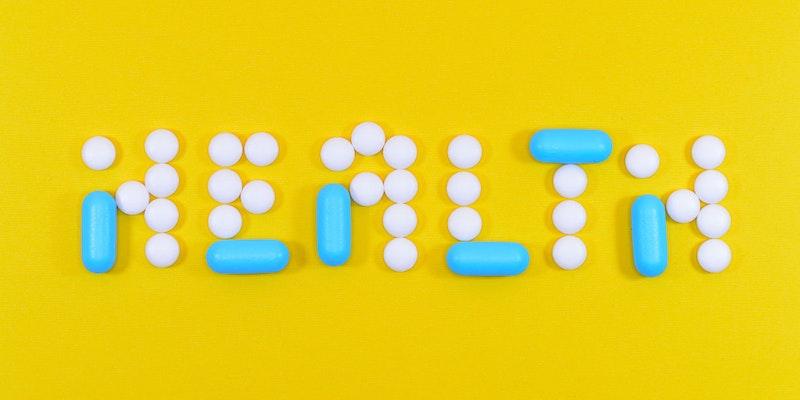Zinc, a vital trace mineral, is indispensable for various physiological processes in the human body. However, there's a line between beneficial and detrimental intake, which can lead to several health complications when crossed. While zinc deficiency is often discussed, less attention is given to its opposite: the symptoms of overdose of zinc. Too much zinc in one's system is unnecessary and potentially harmful.
1. Gastrointestinal Distress
Gastrointestinal distress stands as a primary indicator of an overdose of zinc. This symptom umbrella encompasses a series of unpleasant digestive experiences that can range from mildly inconvenient to acutely painful. Let's break down the experiences:
Stomach cramps
An unsettling tightness or painful contraction in the abdominal region, stomach cramps often signal that the digestive system is struggling. In the context of a zinc overdose, the stomach tries to process the excessive amounts of the mineral, causing discomfort.
Nausea
This queasy sensation, a precursor to vomiting, is the body's initial reaction to the high zinc levels. It serves as a warning sign indicating something's not right within the digestive system.
Vomiting
When the body deems it necessary, it might expel the stomach's contents, including the excess zinc, to protect itself. Vomiting is a forceful reaction and is the body's way of rapidly reducing the concentration of unwanted substances.
Diarrhea
Like vomiting, diarrhea is another method the body employs to rapidly rid itself of toxins or excessive substances. Loose, watery stools can lead to dehydration, making it essential to drink plenty of fluids if experiencing this symptom.
Suppose someone notices these symptoms after ingesting a significant amount of zinc—whether from supplements, creams, or unintentional consumption—it's crucial to regard them as potential signs of zinc overdose. Time is of the essence. Seeking a zinc overdose remedy, such as medical advice or intervention, becomes paramount.
2. Metallic Taste in the Mouth
Imagine biting into a piece of metal — a taste unmistakably out of place. A metallic taste lingering in the mouth is a distinctive and often overlooked sign of zinc overdose. This sensation, often bitter or sour, can dramatically alter the flavor profile of foods and drinks. As zinc levels spike, the mineral might interact with the taste buds and other oral receptors, leading to this unusual sensation.
The persistence of this taste affects not only one's palate but also one's appetite. When everything tastes metallic, there's a natural aversion to consuming food or beverages.
3. Neurological Symptoms
Zinc plays a subtle yet critical role in the functioning of our nervous system. However, when its levels cross the threshold, the symptoms become glaringly evident. The neurological symptoms of overdose of zinc include:
Dizziness
A sensation of lightheadedness or feeling that one's surroundings are spinning. Dizziness can affect balance and coordination. It directly manifests the body's response to an excess of zinc.
Unsteadiness
This involves a lack of balance and can lead to stumbling or falls. The central nervous system, overwhelmed by high zinc concentrations, struggles to maintain equilibrium.
Headaches
A throbbing or persistent ache in the head can arise from excessive zinc intake. While headaches have various triggers, they can point to a zinc overdose in conjunction with other symptoms.
These neurological symptoms collectively paint a picture of a body in distress. The nervous system's delicate balance gets disrupted by elevated zinc levels, signaling the need for intervention.
4. Reduced Immunity

The duality of zinc's impact on immunity is fascinating. In moderation, it's a booster, fortifying the body's defenses. In excess, it's a dampener, making the body vulnerable. This paradoxical effect occurs due to the following reasons:
Interference with Mineral Absorption
When zinc is consumed in large amounts, it competes with other essential minerals for absorption, particularly copper. The body struggles to absorb enough copper, leading to a deficiency.
Impact on Immune Cells
A copper deficiency, spurred by excessive zinc, directly impacts the functioning of various immune cells. This affects the body's capacity to produce specific antibodies and other critical immune responses.
5. Disruption in HDL Levels
HDL cholesterol, or "good cholesterol," is essential for heart health. HDL cholesterol picks up "bad cholesterol," low-density lipoprotein (LDL), and transports it to the liver for processing and elimination. This technique prevents LDL buildup in arteries, preventing blockages and improving cardiovascular health.
However, when there's an overdose of zinc in the system, this beneficial process faces disruption. Excessive zinc can lead to a significant decline in HDL cholesterol levels circulating in the bloodstream. With reduced HDL, there's less "cleanup" of LDL from the arteries, making one more susceptible to atherosclerosis — the hardening and narrowing of arteries. This condition can escalate to more serious cardiovascular events like heart attacks or strokes. If someone has a known risk of heart disease and consumes high amounts of zinc, monitoring HDL levels becomes even more crucial.
6. Hormonal Disruption
The intricate hormonal system, responsible for regulating various physiological functions, is surprisingly sensitive to zinc levels. As a cofactor in numerous enzyme reactions, zinc is integral to the synthesizing and secretion of many hormones.
Zinc levels can significantly alter testosterone, the key male sex hormone. Muscle growth, bone density, and mood management depend on testosterone. Zinc intake above prescribed amounts can inhibit testosterone production and secretion. Initial effects may include mood swings or muscle mass alterations. However, extended zinc exposure can accelerate testosterone reduction, causing libido, weariness, and strength loss.
Other hormones, particularly those related to stress and metabolic functions, can also get imbalanced for both genders. Chronic zinc overdose may result in unexpected weight fluctuations, mood swings, or altered stress responses.
7. Neuropathy
The term "neuropathy" paints a broad stroke over a group of disorders stemming from damage to the peripheral nerves — the vast communication network that transmits signals between the central nervous system and the rest of the body. While various factors can induce neuropathy, a zinc overdose is a lesser-known yet potent trigger.
Over time, excessive zinc can accumulate and exert toxic effects on the peripheral nerves. Affected individuals might start to experience unexplained sensations in their extremities. This could manifest as:
- Numbness: A loss of sensation, making it hard to feel pain, temperature, or touch.
- Tingling: Often described as a "pins and needles" sensation akin to a limb "falling asleep."
- Burning sensations: A discomfort that feels like a mild to intense burn, even without any external cause.
Zinc Overdose Remedy and Prevention

If you suspect that you or someone you know is displaying the symptoms of an overdose of zinc, it is essential to act quickly. Immediate cessation of the zinc source, whether supplements, creams, or other products, is the first step. Drinking plenty of water to help flush out the excess zinc is also recommended.
However, the best zinc overdose remedy is prevention. To prevent an overdose:
- Always follow the recommended daily intake of zinc. This is 8-11 mg daily for most people.
- Zinc supplements should be taken under medical supervision.
- Avoid mixing zinc pills with zinc-rich ointments or lotions.
Conclusion
Like many other nutrients, zinc follows the principle that "too much of a good thing can be bad." Recognizing the signs of zinc overdose is the first step in managing and rectifying the situation. Whether you're experiencing gastrointestinal symptoms, neurological effects, or any other symptom discussed above, always prioritize your health and consult a medical professional. They can provide guidance, offer a suitable zinc overdose remedy, and ensure your zinc consumption remains within a healthy range.







